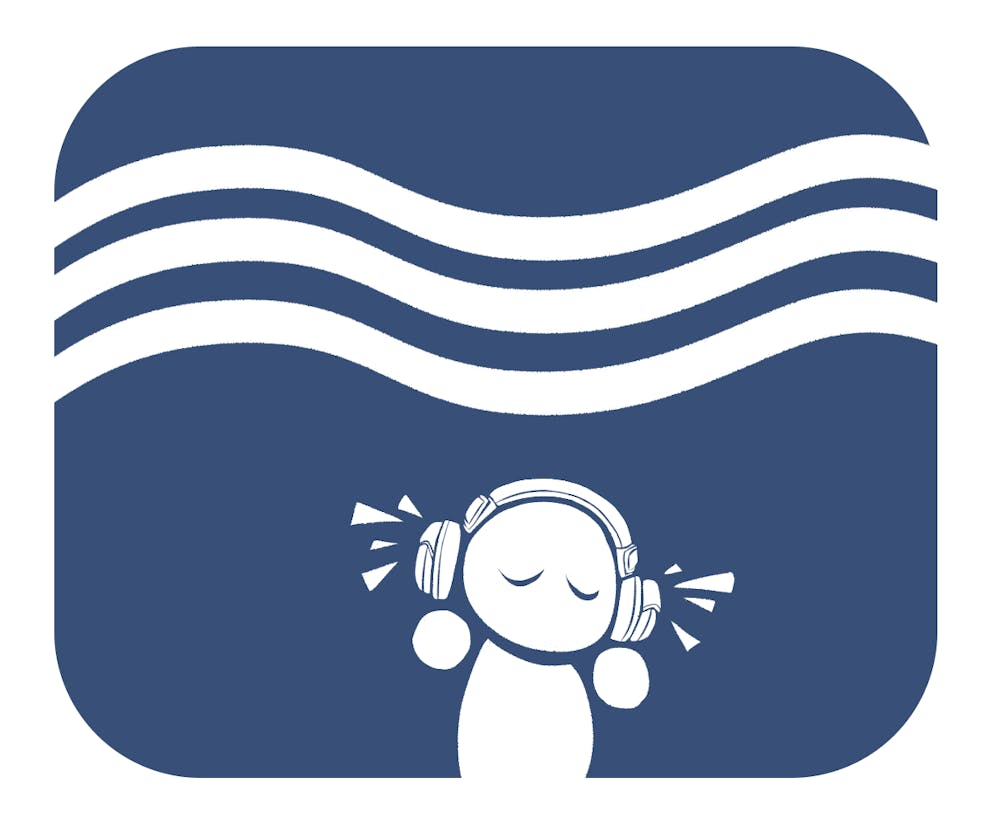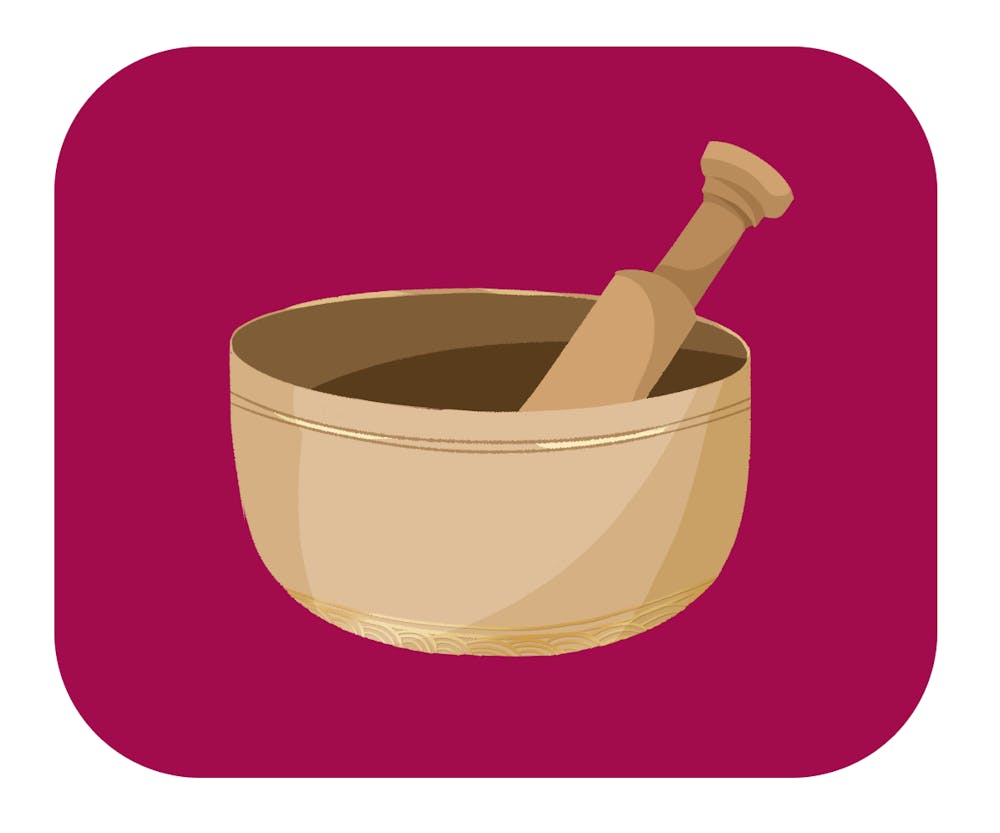2020 was a physically and emotionally taxing year for many of us. The importance of finding outlets to keep us sane and relaxed as the world seemingly explodes cannot be overstated. In the sixth installment of our recommendations series, staff members of The Prospect share various self care activities they have adopted — not only to survive but to thrive — in quarantine. Here are some ways to take care of yourself in 2021.

Mikaela Avakian / The Daily Princetonian
1. Write letters as part of a wellness routine
Recommended by: Prospect writer Mikaela Avakian
Practicing self care is something that is deceptively difficult to master. In fact, (as a first-year) I’ve only recently come to realize that bingeing Big Bang Theory and ice-picking my way through a frozen pint of Ben & Jerry’s isn’t an ideal way to nourish my body after a hard week of classes. Friday night indulgences are not the same as routine wellness.
Though it may be hard for us virtual college students to grasp, it’s important to treat our bodies and minds kindly. It’s important to give ourselves space to be present and breathe — even though scrolling through our phones and reading ‘Prince’ articles is ever so tempting.

One self care ritual I adopted throughout the fall semester was letter writing. Every week, I committed myself to sitting at my desk and writing a letter to a friend, whoever it may be. The repetitive behaviors of organizing my letter stationery, feeling sticky ink between my fingers, licking tangy envelopes, and biking to my local post office have brought me immense joy and creative freedom, even within my busy schedule.
Admittedly, college doesn’t leave much time for superfluous, philosophical data entries and descriptive daydreams — far from it, most of what I’ve written so far resembles a murky, Faulkner-esque train of thought. But whether you’re going through a lull in life or are internally debating the principles of Kantian metaphysics, writing reflects your own engagement and understanding of what surrounds you. Silence with yourself and silence through writing prompts reflection and gratitude: core tenets of self care.

Sydney Peng / The Daily Princetonian

2. Explore yourself with “Unlocking Us” by Brené Brown
Recommended by: Prospect writer Aditi Desai
I’m surrounded by a mural of both sound and silence. From quiet, hours-long study sessions to lengthy pauses in Zoom breakout rooms, silence infiltrates much of the day. Though there are moments when the sound around me — reporters on the TV screen, dynamic family conversations, Zoom movie calls — fills the gaping holes left by silence earlier in the day, I still crave voices. I crave listening to someone speak, listening to their voice flow as they wrestle with intangible thoughts. I crave feeling someone speaking to me, near me, and with me. Thus, one form of media that I immediately turn to is podcasts.
I’ve listened to podcasts in the past. As a part of a generation obsessed with consuming content, I often listened to podcasts underlining the best ways to be more productive and condensing world news into ten (very fast) minutes. I’ve made listening a part of my daily routine, tuning into them during car rides, baking sprees, and laundry-folding marathons. Feeling overwhelmed by news, alerts, and emails surrounding the pandemic, I recently turned to a different type of podcast: Brené Brown’s “Unlocking Us.”
“Unlocking Us” is not pure information. Its purpose does not lie in speeding through facts and summarizing the most pressing headlines. It’s a cathartic adventure that feels like a dynamic, unexpected conversation taking unimaginable leaps into what it means to be hardwired as a human. Brown explores the entanglement of fear, loss, excitement, and hope as it relates to the difficult times we are all experiencing. Her unforgiving words are intentional and conversations with guest speakers follow uncharted trajectories — creating an open stage to delve into human emotions, social connection, and the fear of vulnerability.
Listening to Brown, I’ve learned that self-care does not mean self-ish or a disregard for others. Rather, it is extending the same care, concern, and empathy for yourself as you do for others. It’s pushing and elongating your own boundaries of vulnerability. As she notes on one of her most recent episodes, “authenticity is the daily practice of letting go of who we think we’re supposed to be and embracing who we are.”
As a medium without visual biases, “Unlocking Us” unleashes deeply honest reflections on both the magic and inherent messiness of what it means to be human and love ourselves unconditionally. Although all moments of silence do not, and should not, be filled with sound, Brown’s conversations are a breath of fresh air — giving us permission to drop into an intimate conversation and others’ experiences.

Sydney Peng / The Daily Princetonian
3. Meditate with Insight Timer
Recommended by: Associate Features Editor Annabelle Duval
Between the terrifying headlines about rising COVID-19 cases, the workload of a virtual semester, and the increased screen time, my mind has become a frantic place. These stresses make it easy to feel anxious, distracted, and unfocused. One thing never fails to clear my head: meditation.
We hear so much about the importance of “mindfulness” and “being present,” but I still sometimes overlook meditation as a legitimate way to make me feel better. Some meditations annoy me — the person’s voice rubs me the wrong way, they’re too long and I zone out, or I just fall asleep. If you’ve tried meditation but were never able to stick with it, I recommend the free app Insight Timer. It has thousands of guided meditations, relaxing music, and soothing nature sounds.
The meditations range from one minute to over 30 minutes, so no matter your meditation endurance, there’s one that will work for you. I particularly like Insight Timer because there are countless “teachers” who have series of guided meditations that you can follow. Once you find a teacher you like, you can explore all of their talks, meditations, music, and “daily insights.” I enjoy Sarah Blondin’s meditations, which are each about eight to 12 minutes long. “Accepting Change,” and “Practicing Gentle Kindness Toward Ourself” are two of my favorites. They remind me not to be too hard on myself, and that perfection should never be my goal. These lessons, while they may seem cliche or obvious, are important to remember every day and particularly during these difficult times.
Insight Timer is available for both Apple and Android devices.

Sydney Eck / The Daily Princetonian
4. Quell anxiety through knitting
Recommended by: Prospect writer Sydney Eck
When you’re stuck in front of a screen all day, constantly bombarded by Canvas assignments, it is easy to feel stagnant and unproductive. But when I’ve done some knitting, I, at the very least, have something small and tangible to show for my efforts. I’ve done something, made visible progress towards a goal.
Last semester, I found that keeping my hands busy during Zoom calls kept me from reaching for my phone or absentmindedly doodling. Meanwhile, I loved knowing that I was working on something I was excited to wear or give to someone I care about. It gave me something to look forward to when everything else seemed to be going ‘the 2020 way.’ With tons of easy, understandable tutorials on YouTube and quality needles available on Amazon or at Walmart for a reasonable price, knitting is now accessible even to the least dexterous.
Besides, even when my work is riddled with mistakes, holes, and strange added stitches, the repetitive, almost meditative rhythm of the needles is incredibly soothing. Mental Health America affirms the psychological benefits of knitting, including increasing the aptitude for social connection, reducing anxiety, and minimizing the effects of chronic pain. Whatever your current comfort level is with crafts, knitting can be both a practical tool and a fun pastime to help you handle the upcoming semester.

José Pablo Fernández García / The Daily Princetonian
5. Practice serenity through viewing artwork online
Recommended by: Associate Prospect Editor José Pablo Fernández García
One of the feelings I miss most from pre-quarantine times is the serenity of standing before a work of art in a museum. Of course, not all art is serene: there are bloody history paintings that depict battles, for example.
Still, I’ve enjoyed most trips to art museums as welcome breaks from the hustle and bustle of normal life — as chances to relax and reflect while also learning a bit. Viewing art has often inspired me to rethink things in my life, shifting my perspective on the coursework I have yet to complete and the life choices I have yet to make.
Recently, I’ve started following more artists on Instagram whose art creates that sense of serenity and offers a moment to slow down before continuing with my Zoom-filled days. I’ve especially enjoyed following RF Alvarez, who posts almost-daily updates on his art-making process and previews of paintings that blow me away time and again. While this may not be a more traditional form of self-care, seeking out more artists and their art has added some balance and meditation to my life recently. Besides his Instagram account, RF Alvarez’s work can also be seen on his website.







